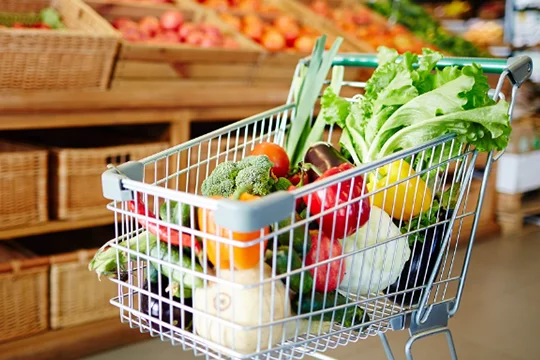
What’s all the hype about?
Organic food is grown without using chemicals, pesticides, genetically modified organisms (GMOs), or any artificial additives, so it's a more sustainable farming practice.
Using organic farming methods ensure that we get more natural product. Also, organic produce has limited exposure to pesticides and sprays, naturally making it beneficial when consumed. So, anyone who prefers to restrict their consumption of products containing additives, colour, and preservatives can start making a conscious buying.
You can shift to buying organic kitchen essentials, including organic pulses, oils, sweeteners, and many other products.
When anyone shifts from one buying habit to another, a strong reason is their focus on health. Moreover, the major motivation behind choosing organic food is its potential health benefits.
Several studies suggest that shifting towards organic food can be a good choice as it has many nutrients, including vitamins, minerals, and antioxidants. It is also free from residues of synthetic pesticides, antibiotics, and growth hormones commonly found in processed food products. By consuming organic food, individuals may reduce their exposure to these potentially harmful substances, promoting better overall health and well-being.
Tips to buy Organic Food & Save money

1. Buy from local farmers market
2. Shop in seasons
3. Choose quality over quantity
4. Read food label for authenticity marks
5. Buy in bulk & share with friends
6. Grow your own Organic food plants
7. Shop online
Laws regulating Organic food products in India
Food Safety and Standards Authority of India (FSSAI) has the mandate to regulate manufacture, distribute, sell or import “organic foods” as per the provisions laid under Section 22 of the Food Safety Standards Act, 2006. Organic foods are regulated by Food Safety and Standards (Organic Foods) Regulations, 2017 .
The Regulations aim to benefit farmers by way of increasing their income. These Regulations recognizes two systems of certification i.e. Participatory Guarantee System (PGS) implemented by Ministry of Agriculture and Farmers Welfare and National Programme for Organic Production (NPOP) implemented by Ministry of Commerce and Industry.
These regulations ensure integrity of the Organic Food products, and help in controlling unscrupulous practices in the market.
These regulations came into force from the date of their publication in Gazette, however the enforcement against these standards started from 01.07.2018.
The Offences and Penalties for the Food Business Operators who are not complying with the FSS Act, Rules and Regulations are liable for offences and penalties provided under Section 48 and 49 of the FSS Act.
Conclusion
Organic vs. processed food depends on personal priorities, values and circumstances. Organic food offers potential health benefits, supports sustainable farming practices and reduces exposure to synthetic chemicals. However, it may not always be available or affordable for everyone. Either way, emphasizing a diet focused on healthy, unprocessed foods is critical to improving health. We can create a healthier relationship with food by being aware of our choices and their potential consequences. Tipsfor buying organic food products will ultimately lead you to save money & the laws that regulate organic food product will provide us with transparency of product we are going to purchase and use it.
More Updates


